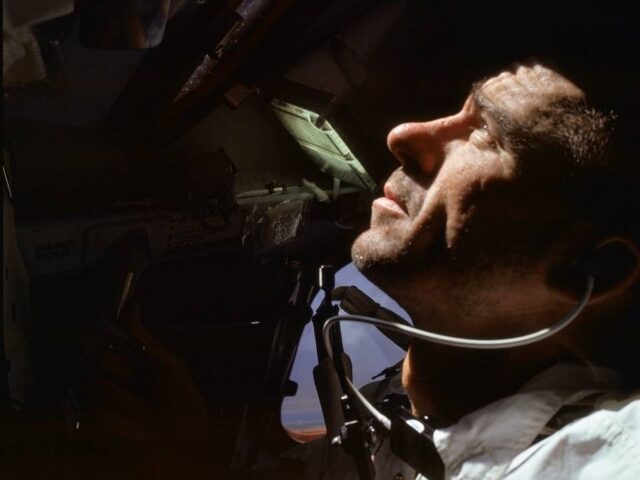Walter Cunningham, who was the last surviving astronaut of the Apollo 7 mission, died Tuesday morning at the age of 90, NASA announced.
The former astronaut died in a Houston hospital “from complications of a fall, after a full and complete life,” according to a Cunningham family spokesman, per the Associated Press.
Cunningham was the lunar module pilot on the 1968 Apollo 7 mission, which was the first human test flight in NASA’s Apollo program since the launch pad fire that killed three Apollo 1 astronauts in 1967.
Along with the two other crew members, Walter M. Schirra, Jr. and Donn F. Eisele, Cunningham launched from Cape Canaveral, Florida, on October 11, 1968. After 263 hours and 4.5 million miles of space flight, they splashed down in the Atlantic Ocean southeast of Bermuda.
During the Apollo 7 mission, the crew provided the first lie television transmission that gave daily updates on their activities, which won them a special Emmy award. They also successfully completed eight tests, helping pave the way for the first flight to the moon on the Apollo 8 mission and, ultimately, the first lunar landing on the Apollo 11 mission.
Today we mourn the passing of Walt Cunningham: U.S. Marine, patriot, and Apollo astronaut.
Cunningham spent 11 days in low-Earth orbit during Apollo 7, the first crewed Apollo flight, and was instrumental to our Moon landing's program success: https://t.co/VrXhOwQwYd pic.twitter.com/8uquEjdxM7
— NASA (@NASA) January 3, 2023
“Walt and his crewmates made history, paving the way for the Artemis Generation we see today,” said NASA Administrator Bill Nelson. “NASA will always remember his contributions to our nation’s space program and sends our condolences to the Cunningham family.”
Cunningham was born in 1932 in Creston, Iowa. He attended high school in Venice, California, before joining the Navy in 1951, where he served on active duty with the Marine Corps. During his time in the Navy, he flew 54 missions as a night fighter pilot in Korea.
He later earned a Bachelor of Arts and a Masters’s degree in physics from the University of California, Los Angeles, in 1961, before completing his doctorate in physics at the Harvard Graduate School of Business in 1974.
Following his time in the military, Cunningham worked as a scientist for the Rand Corporation before being selected as an astronaut in 1963 as part of NASA’s third astronaut class.
Cunningham continued to work at NASA after the conclusion of the Apollo 7 mission, where his last assignment was as the chief of the Skylab branch of the Flight Crew Directorate. He retired from NASA in 1971 and worked in the private sector for tech and finance organizations before he retired.
The former astronaut was still a supporter of space exploration in his later years, according to the Associated Press. Last year, he told a Spokane, Washington, news outlet, “I think that humans need to continue expanding and pushing out the levels at which they’re surviving in space.”
“We would like to express our immense pride in the life that he lived, and our deep gratitude for the man that he was – a patriot, an explorer, pilot, astronaut, husband, brother, and father,” the Cunningham family said in a statement. “The world has lost another true hero, and we will miss him dearly.”
I’ve lost a good friend with Walt Cunningham passing. America and Apollo 11 wouldn’t have gotten to the moon without Walt’s courage and Apollo 7. Their mission made possible every other Apollo mission. He is the definition of an American hero, a man of enormous heart. pic.twitter.com/eKQlqpNBfR
— Dr. Buzz Aldrin (@TheRealBuzz) January 3, 2023
Apollo 11 astronaut Buzz Aldrin also paid tribute to Cunningham in a statement Tuesday.
“I’ve lost a good friend with Walt Cunningham passing,” Aldrin said. “America and Apollo 11 wouldn’t have gotten to the moon without Walt’s courage and Apollo 7. Their mission made possible every other Apollo mission. He is the definition of an American hero, a man of enormous heart.”
You can follow Ethan Letkeman on Twitter at @EthanLetkeman.

COMMENTS
Please let us know if you're having issues with commenting.